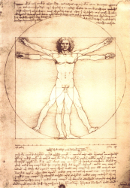Shell-Skript How-To (Linux): Unterschied zwischen den Versionen
Matt (Diskussion | Beiträge) Keine Bearbeitungszusammenfassung |
Matt (Diskussion | Beiträge) |
||
| Zeile 36: | Zeile 36: | ||
Verwendet man Backquote in Skripten, wird zunächst der Inhalt des Backquote ausgeführt, und das Ergebnis an das Skript zurückgegeben. | Verwendet man Backquote in Skripten, wird zunächst der Inhalt des Backquote ausgeführt, und das Ergebnis an das Skript zurückgegeben. | ||
Alternative Notation: $() | Alternative Notation (Wird allerdings in alten Bourne-Shells wohl nicht unterstützt): $() | ||
Quelle: https://linuxwiki.de/Backquote | Quelle: https://linuxwiki.de/Backquote | ||
Version vom 29. November 2019, 10:05 Uhr
Diese Seite erläutert verschiedene Verhalten und Verarbeitungen von Shell-Skripten, sowie wie verschiedene Aufgabenstellungen in Linux umgesetzt werden können.
Quotes
Single Quotes vs. Double Quotes
Merksätze zur Erläuterung:
Single quotes are simple quotes, with a single standard: every character is literal. Double quotes have a double standard: some characters are literal, others are still interpreted unless there's a backslash before them.
Single quotes work alone: backslash inside single quotes is not special. Double quotes pair up with backslash: backslash inside double quotes makes the next character non-special.
The double quotes double the fun expanding parameters one by one.
Double-quotes (") don't exactly mean what the say, for example a tool that says "quality" equipment is probably the opposite.
Single-quotes(') are strong quotes, what is between them is exactly what it seems.
Backquote
Backquote bezeichnet das folgende Symbol: ``
Verwendet man Backquote in Skripten, wird zunächst der Inhalt des Backquote ausgeführt, und das Ergebnis an das Skript zurückgegeben.
Alternative Notation (Wird allerdings in alten Bourne-Shells wohl nicht unterstützt): $()
Quelle: https://linuxwiki.de/Backquote
